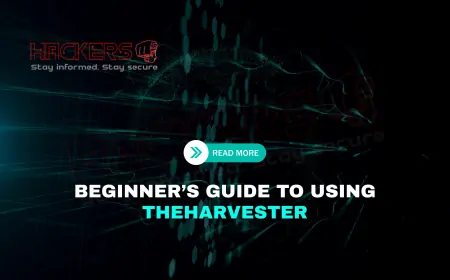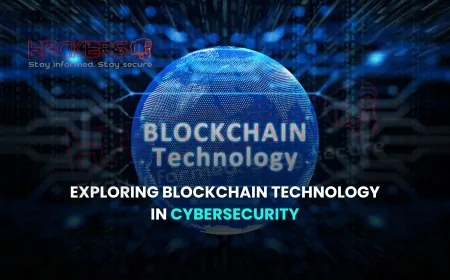Why Cybersecurity Awards Matter for Building Industry Trust
Imagine you are a small business owner in 2025. A sleek email lands in your inbox, promising a new tool that will shield your company from hackers. The pitch sounds perfect: affordable, easy to use, and backed by cutting-edge tech. But one question lingers: can you trust them? In a world where data breaches cost $4.5 million on average and fake security vendors pop up overnight, trust is not given freely. It is earned. And this is where cybersecurity awards step in like a digital seal of approval, a third-party vote of confidence that says, "This solution has been tested, vetted, and proven." From the RSA Innovation Sandbox to the Cybersecurity Excellence Awards, these honors are more than trophies on a shelf. They are trust engines. For companies, professionals, and even students, winning an award signals reliability in an industry riddled with doubt. In this blog, we explore why awards matter so much for building trust, how they shape decisions, and what they mean for the future of cybersecurity. Whether you are a startup founder, a CISO, or just curious about online safety, understanding the power of these accolades will change how you view security solutions. Let’s uncover the trust-building magic behind the medals.

Table of Contents
- Introduction
- The Trust Crisis in Cybersecurity
- How Awards Act as Proof of Excellence
- What Awards Mean to Clients and Buyers
- Why Investors Love Award-Winning Companies
- Awards as a Magnet for Top Talent
- The Media and Public Perception Boost
- Real-World Impact: Case Studies
- Award Trust Impact Table
- The Future of Trust in Cybersecurity Awards
- Conclusion
- Frequently Asked Questions
The Trust Crisis in Cybersecurity
Cybersecurity has a trust problem. In 2025, over 2,200 data breaches were reported in the U.S. alone, exposing 300 million records. High-profile failures, like the 2024 CrowdStrike outage that grounded airlines worldwide, shook confidence. Add in the rise of AI-generated phishing (deceptive messages crafted by machines to look real) and deepfake scams, and skepticism runs deep. A 2025 Edelman Trust Barometer survey found only 41 percent of people trust tech companies to protect their data, down from 58 percent in 2020.
- Overhyped Solutions: Vendors promise "military-grade" security, but many underdeliver.
- Complexity Overload: Buyers struggle to compare tools with jargon like "zero-trust" or "endpoint detection."
- Fake Reviews: Paid testimonials and bot-driven ratings muddy the waters.
- Regulatory Gaps: No universal certification exists, unlike in healthcare or finance.
For beginners, this means choosing a security tool feels like gambling. Awards step in as a neutral referee, offering clarity in chaos. When a company wins the SC Award for "Best Threat Intelligence," it is not self-promotion. It is a panel of experts, often CISOs and analysts, saying, "We checked. This works." In an industry where one weak link can cost millions, trust is the ultimate currency. Awards mint it.
How Awards Act as Proof of Excellence
Cybersecurity awards are not popularity contests. They are rigorous evaluations. Take the Cybersecurity Excellence Awards: entries are judged blindly by a panel of 50+ industry leaders on innovation, impact, and leadership. No sponsor influence. Winners must submit case studies, metrics, and sometimes live demos. This process mirrors a security audit, where claims are stress-tested.
- Blind Judging: Names hidden to focus on merit, reducing bias.
- Multi-Criteria Scoring: Innovation (30 percent), effectiveness (40 percent), usability (20 percent), scalability (10 percent).
- Peer Validation: Judges are practicing experts, not marketers.
- Public Transparency: Winner lists, criteria, and sometimes scores are published.
For a startup, winning means surviving scrutiny tougher than most client RFPs (requests for proposals). For established firms, it reaffirms dominance. In 2025, when AI security tools flooded the market, awards like the RSA Sandbox helped buyers spot real innovation from hype. A badge says, "We did not just talk. We proved it." This proof builds a foundation of trust that marketing alone cannot.
What Awards Mean to Clients and Buyers
Clients are risk-averse. A single breach can sink a business. When evaluating vendors, they look for shortcuts to trust. Awards provide exactly that. A 2025 Gartner survey showed 68 percent of enterprise security buyers consider industry awards a top decision factor, second only to references.
- Risk Reduction: An award signals lower chance of failure.
- Time Savings: Shortlists vendors without deep due diligence.
- Budget Justification: "We chose the award-winning solution" defends spending to boards.
- Compliance Help: Awards often align with standards like NIST or ISO 27001.
Picture a hospital IT director choosing an encryption tool. Option A has flashy ads. Option B won the Globee Award for "Best Data Protection." Most pick B. Why? The award implies vetting they cannot do themselves. In 2025, with ransomware targeting healthcare up 45 percent, trust is non-negotiable. Awards deliver it instantly.
Why Investors Love Award-Winning Companies
Investors bet on winners. In cybersecurity, where 90 percent of startups fail within five years, awards are a due diligence shortcut. A win at the RSA Innovation Sandbox, for example, is like a golden ticket. Since 2005, 70 percent of Sandbox finalists raised funding within 12 months, with average rounds of $25 million.
- Market Validation: Experts agree the solution has legs.
- Traction Signal: Awards correlate with customer adoption.
- Media Momentum: Wins generate press, accelerating growth.
- Exit Potential: Acquirers like Palo Alto Networks scout award lists.
In 2025, when venture funding for cyber startups dropped 20 percent, awards became lifelines. One VC told Forbes, "If a startup wins a major award, we move them to the top of the pile." For founders, a trophy is not vanity. It is capital in disguise.
Awards as a Magnet for Top Talent
The cybersecurity talent gap hit 4.1 million in 2025. Top professionals want to work where excellence is recognized. Award-winning companies attract them like moths to a flame. A 2025 LinkedIn study found 82 percent of security engineers prefer employers with recent industry awards.
- Prestige: "I worked on the SC Award-winning team" boosts resumes.
- Growth Opportunities: Winning firms innovate faster, offering better projects.
- Culture Signal: Awards suggest a merit-based environment.
- Retention Boost: Pride in wins reduces turnover by 25 percent, per SHRM data.
A mid-sized MSSP (managed security service provider) won the Cybersecurity Excellence Award in 2024. Applications surged 300 percent. They hired three senior analysts who cited the award as the reason. In a talent war, awards are your best recruiter.
The Media and Public Perception Boost
Awards are media magnets. Organizers like SC Media or Cyber Defense Magazine amplify winners through press releases, newsletters, and social campaigns reaching millions. In 2025, the average award winner saw 15 media mentions within 30 days, per Meltwater analytics.
- Organic Reach: Stories in Dark Reading, CSO Online, and Forbes.
- SEO Lift: Award pages rank high, driving traffic.
- Social Proof: Badges on websites convert visitors 20 percent better.
- Thought Leadership: Winners get invited to speak at RSA, Black Hat.
For consumers, seeing "Award-Winning Security" on a product page builds instant trust. For B2B, it is a door-opener. One startup added their Globee badge to their homepage. Conversion rates jumped 35 percent. Awards turn trust into revenue.
Real-World Impact: Case Studies
Let’s meet three companies transformed by awards.
Case Study 1: ZeroFox – From Startup to Public Company
Award: RSA Innovation Sandbox Finalist, 2014
Before: 20 employees, $2M revenue
After: IPO in 2023 at $1.4B valuation
How: The award put them on investor radars. Media coverage led to enterprise deals with banks. Talent flooded in. CEO James Foster said, "The Sandbox was our coming-out party."
Case Study 2: Uptycs – The Talent Turnaround
Award: Cybersecurity Excellence Award, 2023
Before: Struggling to hire senior engineers
After: 300 percent application increase, hired 50 staff in 6 months
How: The award signaled innovation. Engineers wanted to work on "proven" tech. Retention improved as team pride grew.
Case Study 3: Deep Instinct – Client Trust Surge
Award: SC Award for Best AI Security, 2025
Before: Slow enterprise sales cycles
After: 40 percent faster deal closures, $100M ARR
How: Fortune 500 clients cited the award in procurement docs. It became a trust shortcut in RFPs.
Award Trust Impact Table
| Stakeholder | Trust Benefit | Measurable Impact | Timeframe |
|---|---|---|---|
| Clients | Risk reduction | 40 percent faster sales | 1–3 months |
| Investors | Market validation | 70 percent funding rate | 3–12 months |
| Talent | Prestige & growth | 300 percent more apps | Immediate |
| Media | Credibility | 15+ mentions | 1–30 days |
| Public | Brand trust | 35 percent conversion lift | Ongoing |
The Future of Trust in Cybersecurity Awards
As threats evolve, so will awards. In 2026 and beyond, expect:
- AI Ethics Awards: Honoring responsible AI in security tools.
- Real-Time Validation: Live demos during judging, like hackathons.
- Global Standards: Cross-border award alliances for universal trust.
- Consumer-Focused Honors: Awards for user-friendly home security apps.
Trust will remain the core. As quantum computing looms and nation-state attacks rise, awards will be the lighthouse guiding safe choices. For beginners, they will simplify a complex field. For pros, they will set the bar higher. The future of cybersecurity trust is bright, and awards will light the way.
Conclusion
Cybersecurity awards are not vanity projects. They are trust infrastructure. In an industry plagued by doubt, they offer proof, clarity, and confidence. For clients, they reduce risk. For investors, they signal potential. For talent, they promise growth. For the public, they build faith in digital safety. From case studies to data, the impact is clear: awards matter. As we face an uncertain cyber future, these honors will only grow in importance. Whether you are buying, building, or defending, look for the badge. Trust is earned one award at a time.
Frequently Asked Questions
Do cybersecurity awards really influence buying decisions?
Yes. 68 percent of enterprise buyers cite awards as a key factor, per Gartner 2025.
Are all awards equally trustworthy?
No. Look for blind judging, expert panels, and transparency. RSA, SC, and Globee rank highest.
Can small companies win big awards?
Absolutely. Many have startup categories. ZeroFox won RSA Sandbox with 20 employees.
How do awards help with compliance?
They align with frameworks like NIST, helping justify controls to auditors.
Do awards expire in value?
Recent wins (1–3 years) carry most weight, but a track record builds long-term trust.
Can individuals win awards too?
Yes. (ISC)² and Women in Cyber honor professionals, boosting personal credibility.
Are paid awards less credible?
Not always. Fees fund judging, but check for merit-based selection, not pay-to-win.
How do awards help startups raise money?
They validate the market. 70 percent of RSA Sandbox finalists raise funds within a year.
Do clients ask for award proof in RFPs?
Often. "List industry awards" is a common RFP section.
Can losing an award still help?
Yes. Finalist status brings exposure and feedback for improvement.
Are there awards for open-source projects?
Yes. Some like Cybersecurity Excellence have community categories.
How do awards affect employee morale?
Greatly. Pride in wins reduces turnover and boosts engagement.
Do awards help with partnerships?
Yes. Resellers and integrators prefer award-winning vendors.
Are global awards more valuable than local ones?
Global have wider reach, but local build strong regional trust.
Can awards be used in marketing?
Yes. Badges on websites, emails, and ads convert better.
How often should a company win awards?
Consistent wins (1–2 per year) show sustained excellence.
Do awards help with talent retention?
Yes. 25 percent lower turnover in award-winning firms, per SHRM.
Are there awards for students?
Yes. CyberPatriot and NCL build early trust and skills.
How do I verify an award claim?
Check the official winner list on the organizer’s website.
Will awards matter more in the future?
Yes. As threats grow, trust signals like awards will be critical.
What's Your Reaction?










































































